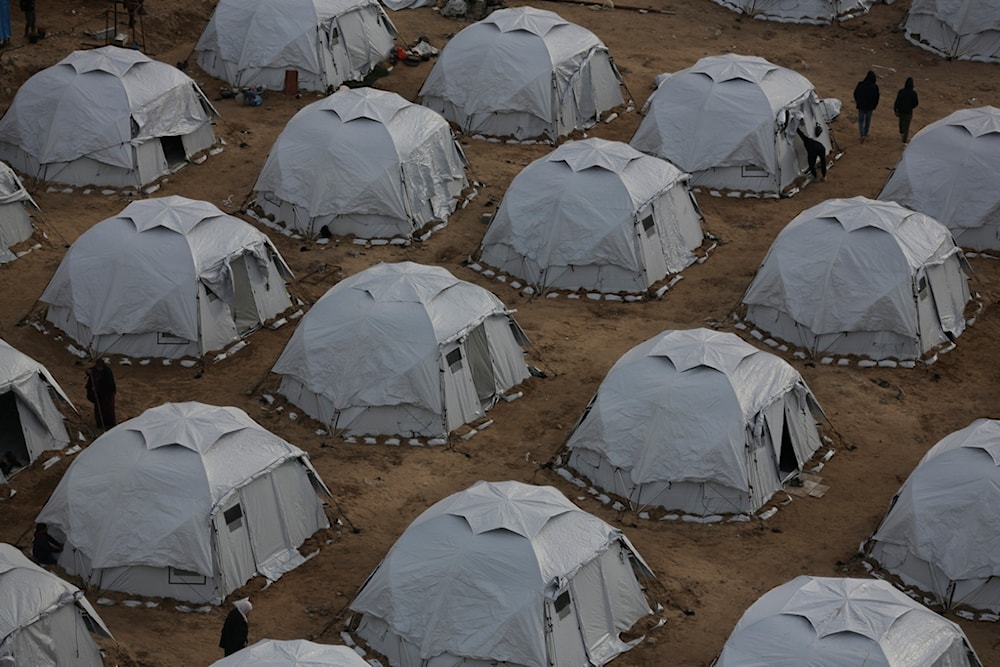EU urges unhindered humanitarian access to Gaza amid ceasefire dispute
The aid blockade has triggered widespread condemnation from international organizations and human rights groups.
-

A tent camp for displaced Palestinians is set up amid destroyed buildings in the west of Al-Shati camp, west of Gaza City, on Monday, March 3, 2025 (AP Photo/Jehad Alshrafi)
The European Union has urged all parties involved in the war on Gaza to ensure humanitarian assistance reaches those in need, as concerns over worsening conditions in the besieged strip grow. During a press briefing on Tuesday, European Commission representatives stressed the necessity of unimpeded access for both aid supplies and humanitarian workers.
"We call all parties to enable access to Gaza and to enable access of the humanitarian aid also to make the humanitarians able to do their job," Commission spokeswoman Eva Hrncirova stated.
Echoing this stance, European Commission foreign affairs spokesman Anouar El Anouni underscored the significance of "total and unimpeded access of humanitarian aid into Gaza for the proper distribution of assistance to people in need."
The EU's appeal comes after "Israel" blocked humanitarian aid to Gaza, following Hamas' rejection of a proposal put forward by US envoy to the Middle East, Steve Witkoff, to extend the temporary ceasefire and not move to a permanent one.
The proposal sought to initiate a temporary cessation of hostilities for 1.5 months, covering both Ramadan and Passover, in exchange for a phased release of Israeli captives. Under the suggested framework, half of the captives—both living and deceased—were to be released on the first day, while negotiations for a permanent ceasefire would determine the release of the remaining captives. Hamas rejected the terms, citing concerns over long-term guarantees, prompting "Israel" to suspend aid deliveries.
Read more: Amid Knesset brawl, Netanyahu hints 'Israel' might resume Gaza war
The aid blockade has triggered widespread condemnation from international organizations and human rights groups. UN humanitarian chief Tom Fletcher criticized "Israel's" move, arguing that the restriction of aid violates international law. Several aid agencies and governments have also accused "Israel" of weaponizing humanitarian assistance by using starvation as a tool of war against Palestinians.
While the EU has been vocal about the need for humanitarian aid in Gaza, some of its member states have continued to provide substantial military support to "Israel". Since the start of the war on Gaza in October 2023, EU member states have collectively contributed approximately $1.22 billion USD to "Israel" through arms exports and research funding, some of which may have military applications. Germany, the United Kingdom, France, and Italy have all supplied "Israel" with military equipment, including air defense components, anti-tank weapons, and ammunition. Meanwhile, the EU has allocated over €126 million ($136.5 million USD) in research funding to Israeli projects, some of which are linked to defense technologies.

 3 Min Read
3 Min Read








